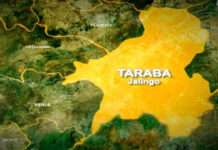

Residents of Keffi Local Government Area in Nasarawa State have appealed to the Federal Government to establish a train service linking Abuja to Keffi, citing the benefits of easing traffic congestion and improving security along the busy highway.
Speaking in Keffi, commuters said the Abuja–Keffi railway line would provide a much-needed alternative to road travel for thousands of residents, particularly civil servants who live in Nasarawa but work in the Federal Capital Territory. They argued that the project would mirror the Abuja–Kaduna train service, which has already proven successful in reducing pressure on road transport.
Mr. Segun Damisa, a commuter, described the proposed train service as a “game changer,” noting that it would reduce the daily gridlock, cut down on accidents, and help workers arrive at their destinations on time. “If the train service is created for this place, it will reduce the suffering people endure every day on the Abuja–Keffi highway. People will go to work and return home on time, and accidents will also reduce,” he said.
Another resident, Hajiya Halima Adamu, stressed that rail travel offers greater security compared to road transport. She pointed out the frequent incidents of robberies, “one-chance” kidnappings, and road accidents on the Keffi–Abuja axis. “With the train, there is more security. It is not perfect, but it is far safer than road transportation. We really need it here and hope the government will listen,” she said.
Mr. Nwankwo Benedict also supported the idea, calling for the railway to be extended beyond Keffi to Lafia and Makurdi to aid the movement of goods, particularly farm produce. He highlighted the success of the Abuja–Kaduna route, saying the Keffi line would be more feasible and less costly due to its shorter distance.
“With the proximity of Nasarawa to Abuja, this project is doable and affordable. From Abuja to Keffi could take about 30 minutes, and the impact on transportation of people and goods will be massive. It’s a win-win for both the government and the people,” Benedict said.










